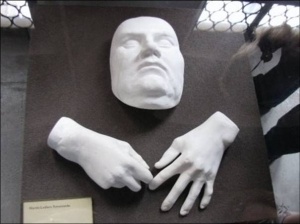A plenary indulgence can be obtained during Holy Week for oneself or for a deceased person if one of the following works established by the Church is performed. A plenary indulgence is a grace granted by the Catholic Church through the merits . . . Continue reading →
reformation
A Tour Of The Reformed World In Uganda
After my lecture in Covenant Theology class, a student, John,1 came up to speak with me. He shared that he was having trouble paying his fees, which is a common struggle post COVID. But he was having trouble for a more particular . . . Continue reading →
“Edwards Injects Into Faith” In The Act Of Justification The Virtues Of The Christian Life
Edwards is very clear that faith does not justify a believer as a virtue or as forming any part of the righteousness which is the basis or ground of God’s judicial verdict. In this, he clearly stands with the Reformed tradition over . . . Continue reading →
Commencement
It is graduation season. This academic year (and the one preceding it) has been rough on students and parents alike. If you have not been paying attention here are a few examples of what we’ve learned is taking place in your local . . . Continue reading →
Imprisoned And Faithful: A Letter From Marie Durand
[Marie Durand] would be born in 1711 in Bouchet-de-Pranles into a community with a hoary past of linguistic, cultural, political, and religious autonomy. She was born into a church whose beliefs and practices were deeply rooted in the sixteenth-century Reformation and the . . . Continue reading →
Heidelcast For July 17, 2022: Every Tribe, Tongue, And Nation (8): First Head Of Doctrine (5)
In this episode Dr Clark continues his series on the Canons of Dort where we are looking at the First Head of Doctrine of the Canons of Dort, articles 12 and 13. The Synod was responding to the problem of assurance. The . . . Continue reading →
Reformation Day 2022: The Antidote For A Fearful People
On reflection, it is rather amazing that an obscure Augustinian monk from a German backwater, teaching in an obscure school, was able to turn the Holy Roman Empire on its ear. Just as amazing is the fact that the greatest known powers . . . Continue reading →
Of Catholics, Evangelicals, and Rome
Mr. White, Mr. Black, and Mr. Gray Cornelius Van Til used to write about Mr. White (the confessionally Reformed fellow), Mr. Black (the Roman Catholic fellow), and Mr. Gray (or Grey, the Arminian fellow). His point was that, on some issues, the . . . Continue reading →
Was the Reformation a Big Misunderstanding?
The socially conservative evangelicals do not have a doctrine of a twofold kingdom; nor do they typically distinguish between nature and grace or between the sacred and the secular. Thus the only way they can cooperate with Roman Catholics on social questions is to get them converted and baptized. Continue reading →
Harry Potter And The Allure Of A Magical World
The Harry Potter movies were enchanting movies (pun intended). They are shot through with overt theological themes: ontology, good and evil, cosmology, sin, and redemption. Part way through one of them, I remembered something that Bob Godfrey once said, something that I . . . Continue reading →
Review: Still Protesting: Why the Reformation Still Matters By D. G. Hart
In 2008, Mark Noll and Carolyn Nystrom published Is the Reformation Over? An Evangelical Assessment of Contemporary Roman Catholicism.1 The book was measured in its answer, but in an interview at the time of publication, Noll said, yes, the Reformation is over. . . . Continue reading →
Video: “Our Hermit Broke Through”—The Reformation’s Defense Of Sola Fide
Last January, Dr Clark joined Dr Mike Horton, Dr Jonathan Linebaugh, Dr Andreas Stegmann, and Dr Ashley Null to celebrate the Reformation solas in a conference put on by the Wittenberg Center for Reformation Studies. Here is Dr Clark’s talk on the . . . Continue reading →
Luther On Bound Choice: Celebrating The Recovery Of The Doctrine Of Sola Gratia (Part 1)
In 1580, when the Lutherans and the Reformed met at Montbeilard, when the topic turned to predestination, Theodore Beza (1519–1605) rose, lifted his copy of Luther’s Concerning Bound Choice (De servo arbitrio), and said, “We stand with Luther.”1 The Lutheran representatives suggested . . . Continue reading →
Luther On Bound Choice: Celebrating The Recovery Of The Doctrine Of Sola Gratia (Part 2)—Erasmus Of Rotterdam
When Desiderius Erasmus (1466–1536) was born, the printing press was about fifteen years old. Paul II was Pope. Frederick III was Holy Roman Emperor. What we think of today as the Netherlands was ruled by the House of Burgundy. Luther would not . . . Continue reading →









